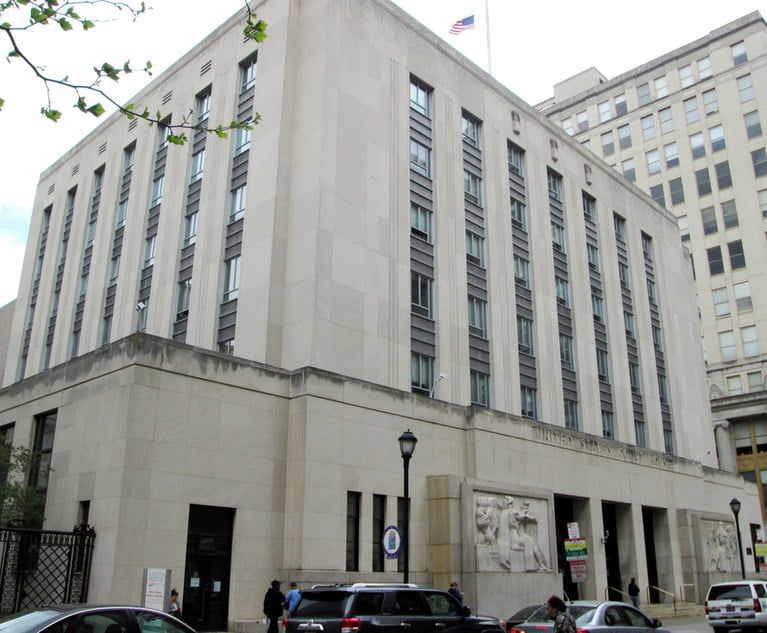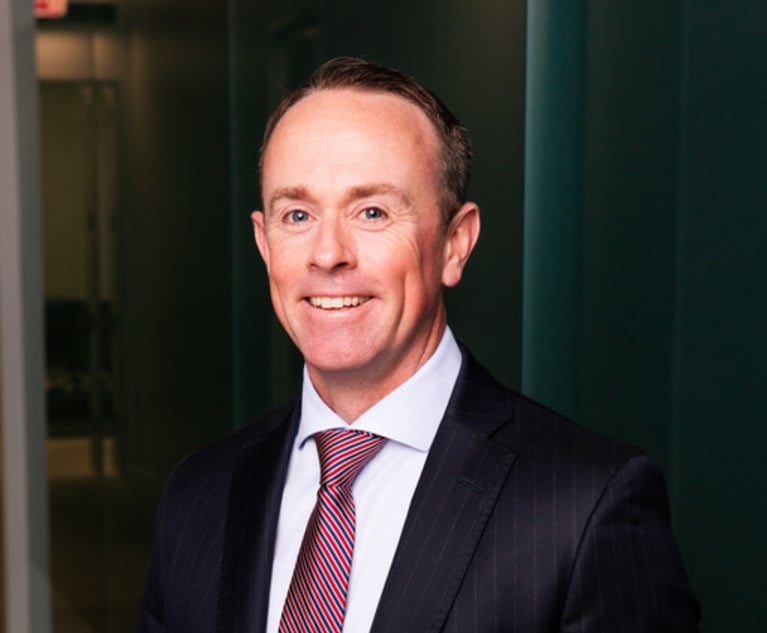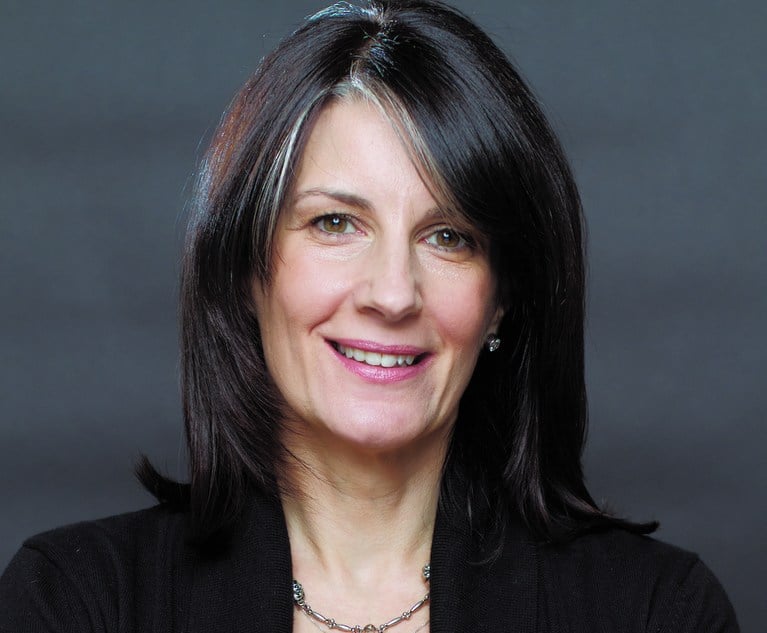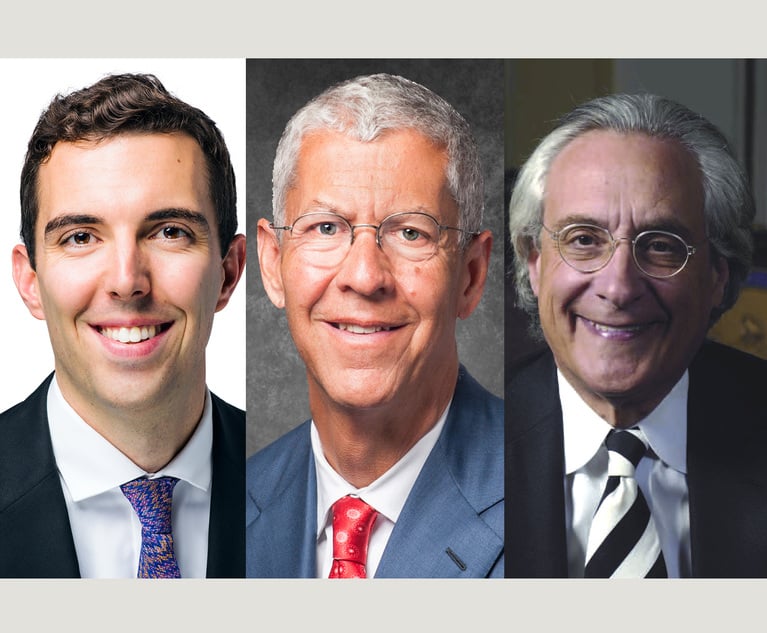Manko, Gold, Katcher & Fox is celebrating its 30th year as one of the country’s leading environmental, energy and land use law boutique firms. Its success is not an accident, but rather one crafted by three decades of strategic marketing and hiring practices. Starting with just seven lawyers, the firm now boasts 32 attorneys who only practice environmental, energy and land use law—but most importantly—in every single facet of those practices. While the firm started off with a strong regional presence, its work is now nationwide, and clients include Fortune 100 companies. Since opening its doors, its revenues have increased tenfold.
I sat down with members of the firm recently, to understand how the firm has flourished—particularly when it resides in the same geographic space as several mega AMLaw 100 firms in Philadelphia boasting strong environmental law practices. I found their recipe for growth to be informative and resounding in the tenets of niche marketing I have been expounding for years.
- Hire great people (both lawyers and staff) who love their chosen profession and have business development and a commitment to client service in their DNA and then provide them with a positive workplace in which to flourish. It’s interesting where Joe Manko found his lawyers. When Manko walked out the door of WolfBlock in 1989 to start an environmental law firm, he looked to the classroom to find great lawyers he could mentor. He and name partner Robb Fox had started teaching environmental law at the University of Pennsylvania Law School the year before and because they were widely loved by their students, they had the luxury of asking top students in the classroom to be summer associates and eventually permanent hires. Members of the firm still teach at Penn Law and now Drexel and Villanova, and they too have continued to attract top talent from law schools. Both the current and incoming managing partners, Jonathan Spergel and Carol McCabe, were students of Manko at Penn years ago as well as summer associates at the firm. Today 40% of the firm’s attorneys were once summer associates. They stayed and built their careers at the firm. Turnover is extremely low. Spergel attributes that to the three-legged stool the firm has deliberately built focused on: intellectually challenging work; excellent compensation and a happy workplace; and a tremendous quality of life.
- Form strategic alliances with law firms with whom you don’t compete. For years, lawyers have met with firms throughout the area with no environmental law practices to cultivate cross-referrals. Manko Gold lawyers regularly go to other law firms and provide free CLEs on site. This systematic matchmaking has produced great dividends.
- Be in your client’s head in a meaningful way and do things that really move the ball for them on a regular basis. This is most definitely a marketing strategy. We know clients care about cost and management of risk. In recognition of that, when the recession hit, MGKF sent a letter to all clients saying rates would not increase for two years. General counsel actually wrote and called saying things like “this is the kind of firm we want to partner with.” In addition, each January, the firm prepares and issues a gratis comprehensive environmental and energy forecast and has made it a point to provide in-person talks and written updates to companies based on actions of the Trump administration.
- Be first at understanding what legal challenges may lay ahead for clients. No one has a crystal ball, but the firm takes deliberate steps to be able to spot trends, changes and potential problems. Said Spergel, “Our lawyers are fortunate to have strong relationships with regulators who trust us. We are regular participants in industry advisory groups where we view first drafts of legislation, regulations and policy changes, so we can comment on these things and then advise clients at the micro level. This nonbillable activity is hugely important to us.” To continuously monitor everything as an institution, lawyers, paralegals and technical support meet every single Tuesday for lunch at the firm to go over new developments in policy, legislation and the courts. Based on his view of what the future holds, Manko believes the next wave of work may stem from climate change impacts and accordingly the firm is closely assessing these issues, among other potential challenges for clients.
- Figure out how to deliver a service in your niche that no other law firms are delivering. Yes, they believe they have the largest number of environmental, energy and land use lawyers in the region, but they also have on staff three technical consultants who know and understand the science behind what their clients are doing. Not only do these technical specialists support the lawyers, they also do peer review work for clients—and are hired to tell clients if their consultants are giving them the right advice. None of the large firms in the region, to the firm’s knowledge, have similar experts on their teams and take this multi-disciplinary approach.
- Have a formal marketing and mentoring program in place for your younger lawyers. Each associate has an MGKF mentor who takes them to marketing activities to see first-hand how it is done. “Associates have had and will continue to have critical roles, including presenting ones at major RFP interviews,” said Spergel.
- Be thought leaders. Write, speak and get out there. It is ingrained into each new lawyer at the interview stage, that they will need to publish and present on key legal developments and to do this often. And they do. They also have key leadership positions and memberships in numerous high-profile industry, trade, municipal and Bar organizations and are deeply involved in their local communities.
- Plan for practice areas to come and go within the niche by being very diversified within the niche. In the 1980s, there was an explosion of work involving Superfund and RCRA cleanups and litigation. But this litigation would wind down and according to Fox, when it did, the mega firms began to scale down their environmental teams. He added, “MGKF never had to do that—and indeed our market share increased because we were handling so many different areas of environmental law for clients at that time. This depth created huge market share.” Similarly, when the recession hit in 2008, and legal departments were getting squeezed, “many companies saw MGKF, as their go-to firm in view of our lower-rate structure due to lower overhead and our ability to staff matters more leanly.”
- Go visit clients. MGKF lawyers have strategically gone “on the road” on a regular basis to speak with clients for whom they may be doing just a few matters to discuss expanding the representations, to hold client interviews, and to do on-site programs.
- Examine and plan for succession. Despite the fact that the average age of firm lawyers is 44, the firm has a formal committee currently looking at each client relationship and which lawyers will be scaling back their practices in the next four to five years. Succession planning is also taking into account “subject matter” expertise and how that may change with retirements. This is smart marketing in my opinion.


 Stacy West Clark.
Stacy West Clark.




